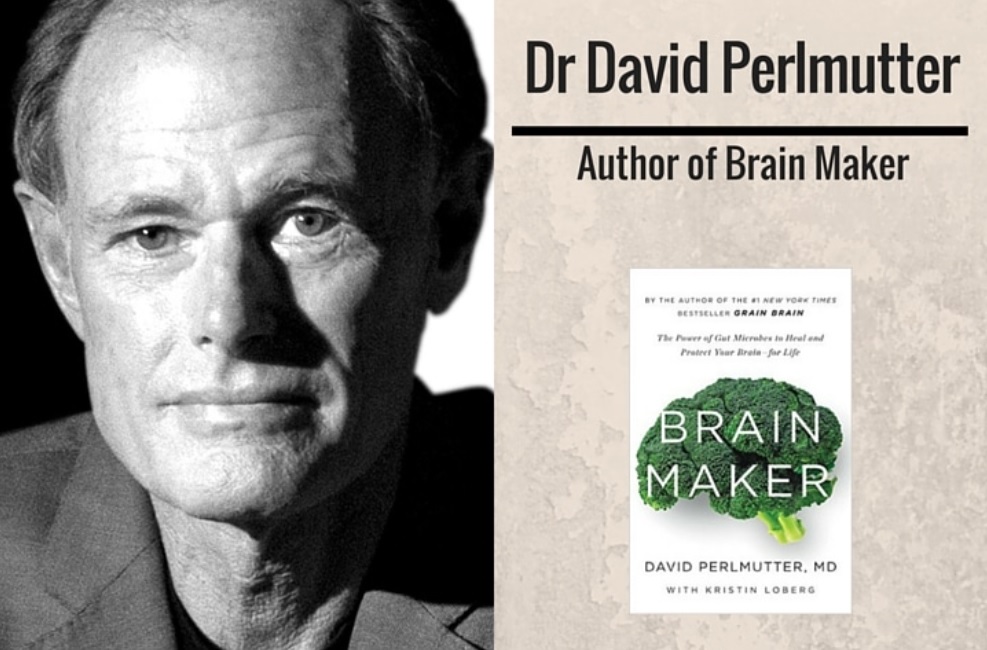Original article from David Perlmutter
For most of recent history, doctors, scientists, and the lay public have operated under the assumption that our brain cells are relatively “fixed” when we’re adults. The idea is simple: we get a certain number of neurons when we’re younger, and when we lose them, they’re gone forever. But in just the last few decades, a stunning breakthrough in neuroscience has proven all that false. Not only can we grow new brain cells into adulthood, but we can enhance enhance this process. This is the spectacular science of neurogenesis, and it’s something you need to know about.
The discovery of human neurogenesis
In the 1960s, a scientist named Joseph Altman demonstrated some of the first evidence of neurogenesis in an adult brain in his lab experiments on rats. This research was later furthered using songbirds in the 1980s, and then in adult macaque monkeys. It wasn’t until the neuroscientist Peter Eriksson and his colleagues 1998 paper, Neurogenesis in the Neurogenesis in the Neurogenesis in the Neurogenesis in the adult human hippocampus that the concept was considered legitimate in humans. In this groundbreaking study, Eriksson and his team looked at radiolabeled tissue from adults who had died and found evidence for neurogenesis in their brains. In the years since, impaired neurogenesis has been proposed as an underlying mechanism in brain issues like depression and dementia, while enhancing neurogenesis is seen as a potential solution to these problems.
Where neurogenesis occurs in the brain
In adults, it’s believed that neurogenesis occurs primarily in two regions of the brain, the hippocampus (a memory and learning center) and the subventricular zone of the lateral ventricles (involved with sense of smell). Other potential regions of neurogenesis include the striatum, amygdala, neocortex, substantia nigra and ventricles, as well as the peripheral nervous system.
5 ways to promote neurogenesis in your brain
Strategy 1: Mitigate stress
Research conducted primarily in animals shows that psychological stress can be damaging for neurogenesis. Both acute stress and chronic stress seem to impair the proliferation of new neurons in the hippocampus. This process appears to be the result of steroid hormones like cortisol which can enter brain cells and reprogram them. Of course, this doesn’t mean that all stress is bad for the brain. It does however give us more reasons to focus on ways to mitigate unhealthy stress. Here’s a brief list of potential strategies:
Strategy 2: Decrease inflammation
Similar to stress, preclinical data has found that too much inflammation in the body may damage healthy neurogenesis. A host of health conditions ranging from heart disease to diabetes to obesity, autoimmunity and some cancers are associated with elevated levels of inflammation, which may mean a higher risk of issues for our brains’ ability to engage in neurogenesis. The mechanism proposed to underlie this finding has to do with inflammation’s activation of the brain’s immune cells (called microglia). Some ways we can help to decrease inflammation in our bodies and brains include:
Strategy 3: Create an enriched environment
When the brain get more stimulation (up to a point), good things seem to happen. This is the idea of “environmental enrichment” that has been studied in animals for the last few decades. In these experiments, it has been found that when animals like mice get access to a larger cage with more toys and interactions with other animals, there’s compelling evidence for increased neurogenesis in the hippocampus. Researchers have suggested that this animal data is relevant for humans. So how do we create an “enriched environment” for our brains? Here are some suggestions:
Strategy 4: Get good sleep
Data from animal research shows that quality sleep seems to promote the production of new neurons. Conversely, sleep deprivation (in animal models, over 24 hours) may significantly impair neurogenesis. This may help explain why MRI studies in humans show correlations between sleep issues and a smaller hippocampus. Sleep is key to a wide variety of processes in the brain that could impact neurogenesis including the regulation of hormones and inflammation, as well as the clearance of metabolic waste that builds up during the day.
Strategy 5: Exercise regularly
Moving our bodies regularly is just about the best way to prioritize brain health. We’re now learning that some of this benefit relates to neurogenesis. Research primarily in animals finds that exercise helps to increase the production of new brain cells in the hippocampus. It’s been noted that this finding may be result of a molecule called “Brain-derived neurotrophic factor” or BDNF which is increased when we exercise and seems to aid neurogenesis. Here’s
a quick list of ways to add a bit more movement into your day
1. Exercise Regularly: Physical activity can help lower stress levels
2. Practice Mindfulness: Techniques such as meditation, yoga, and deep breathing can promote relaxation.
3. Stay Connected: Spend time with friends and family to build a support network.
4. Time Management: Organize your tasks and prioritize to reduce the feeling of being overwhelmed.
5. Hobbies and Interests: Engage in activities you enjoy to help take your mind off stressors.
6. Practice Gratitude: Keep a gratitude journal to focus on positive aspects of life.
7. Professional Help: Seek counseling or therapy if stress becomes unmanageable.
8. Relaxation Techniques: Try progressive muscle relaxation or guided imagery.
9. Limit Screen Time: Reduce time spent on devices to avoid overstimulation.
10. Spend Time in Nature: Outdoor activities can have a calming effect.
11. Listen to Music: Music can be a powerful stress reducer.

